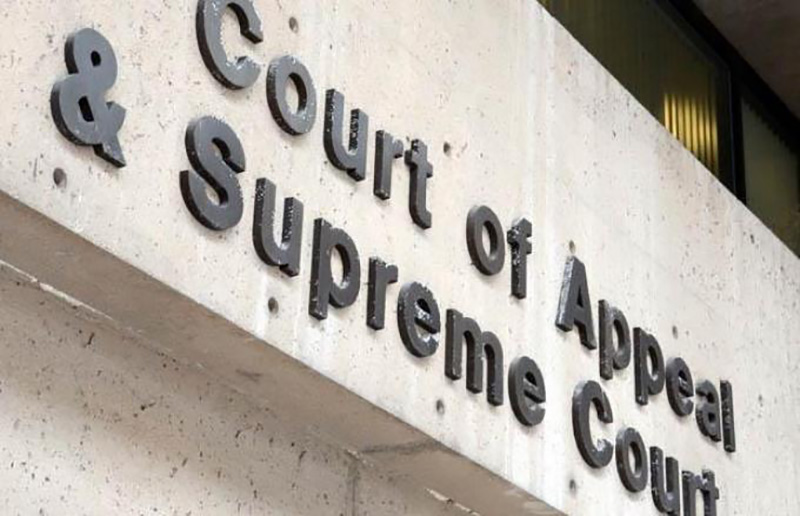This week all eyes will be on Regina, where the Saskatchewan Court of Appeal will hear legal arguments about the constitutionality of Canada’s carbon price. While the case is ostensibly about which level of government has jurisdiction to regulate greenhouse gas emissions, what’s truly driving it is politics, not law.
Reflecting the public interest in the case, the court will livestream its hearing. Those who tune in will be treated to a largely disingenuous legal argument. The real dispute isn’t about the Constitution. It is about how to reconcile climate change and economic development. That is a problem far more complex — and controversial — than federalism’s division of powers.
By referring such disputes to the courts, governments defer hard policy choices and deflect political responsibility. But theirs is a dangerous game.
While the government of Saskatchewan is asking the court to settle the jurisdictional issue of federal carbon pricing, the government of British Columbia is asking the B.C. Court of Appeal to rule whether the province has a right to reject “heavy crude oil” — read the Trans Mountain pipeline — that it says threatens its environment. Neither reference — as such appeals are called — is capable of resolving our national policy disputes and setting us on a shared path forward.
Instead, the courts’ decisions, whatever their legal merits, will invite the losing sides to criticize the courts on policy grounds. Critics will castigate the courts as unaccountable, politicized actors making decisions far beyond their competence. Canadians’ trust in courts and the rule of law will decline, perhaps badly.
This risk is neither hypothetical nor hyperbolic. Following the Federal Court of Appeal’s decision last summer quashing the federal government’s approval of the Trans Mountain pipeline expansion due to the government’s failure to meaningfully consult affected Indigenous groups, pipeline supporters railed against the court, Alberta Premier Rachel Notley, a lawyer herself, demanded Ottawa immediately appeal the decision to the Supreme Court of Canada.
Notley pointed to nary a legal error committed by the court. Rather, she condemned the court’s ruling as “bad for working families” and “bad for the economic security of our country. It is a crisis.”
Prime Minister Justin Trudeau and Saskatchewan Premier Scott Moe similarly expressed their “disappointment” with the court’s conclusion without saying anything about its reasoning. The law was beside the point.
Political hypocrisy
Nor is there any genuine legal dispute about whether the federal government has jurisdiction to regulate greenhouse gas emissions. As University of Ottawa law professor Nathalie Chalifour has shown, the federal government has ample jurisdiction over criminal law, taxation and matters of national concern to do so. The Federal Court of Appeal confirmed as much in its 2016 Syncrude Canada decision unanimously upholding the federal government’s criminal law power to require all diesel fuel produced, imported or sold in Canada contain at least two per cent renewable fuel.
Saskatchewan knows this. Despite its protestations in the carbon pricing case that the federal government is ignoring the Constitution’s “original intent” for the federal and provincial governments to “act independently within the realms of their respective jurisdictions,” Saskatchewan elsewhere argues forcefully in favour of broad federal jurisdiction over national matters, including environmental protection.
In the B.C. “heavy oil” reference, which Ottawa and Saskatchewan argue is a political attack by British Columbia on the Trans Mountain pipeline, Saskatchewan insists “an important part of federal jurisdiction... is to ensure environmental protection in the interests of all Canadians.”
In Comeau, the interprovincial beer case, Saskatchewan argued before the Supreme Court of Canada that “using evidence of ‘original intent’ to unwind case law upturns the [Constitution’s] living tree entirely, burying the leaves and exposing the roots.”
Ottawa fares no better by comparison. In Regina this week it will proudly parade its “co-operative federalism” approach to climate policy, allowing provinces like Saskatchewan to price carbon directly or via a cap-and-trade model tailored to its particular economic circumstances. Before the B.C. Court of Appeal, however, it’s puffing out its chest asserting its paramountcy to unilaterally regulate interprovincial pipelines, despite the disproportionate environmental risks borne by British Columbia, which, for its part, talks out of both sides of its mouth by pontificating about Alberta oilsands production while aggressively subsidizing its own high greenhouse gas-emitting natural gas industry.
These cases expose the hypocrisy of our elected representatives, who refer shamelessly irreconcilable legal arguments to the courts for partisan purposes. The immediate result is delay, distraction and wasted taxpayer dollars. The further foreseeable result is the politicization and erosion of trust in our courts and the rule of law at a time when Canada can least afford it as it grapples with the extradition case of Meng Wanzhou and the criminal prosecution of SNC-Lavalin. The long-term result is to jeopardize Canada’s future, and the world’s. ![]()
Read more: Rights + Justice, Politics, Environment















Tyee Commenting Guidelines
Comments that violate guidelines risk being deleted, and violations may result in a temporary or permanent user ban. Maintain the spirit of good conversation to stay in the discussion.
*Please note The Tyee is not a forum for spreading misinformation about COVID-19, denying its existence or minimizing its risk to public health.
Do:
Do not: